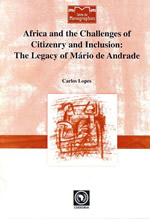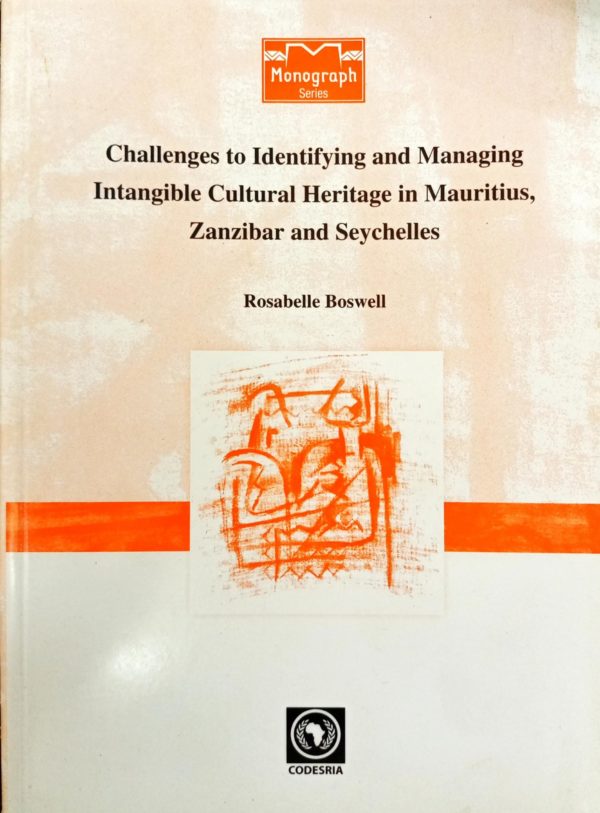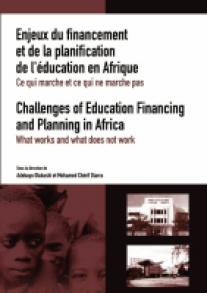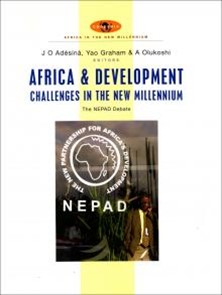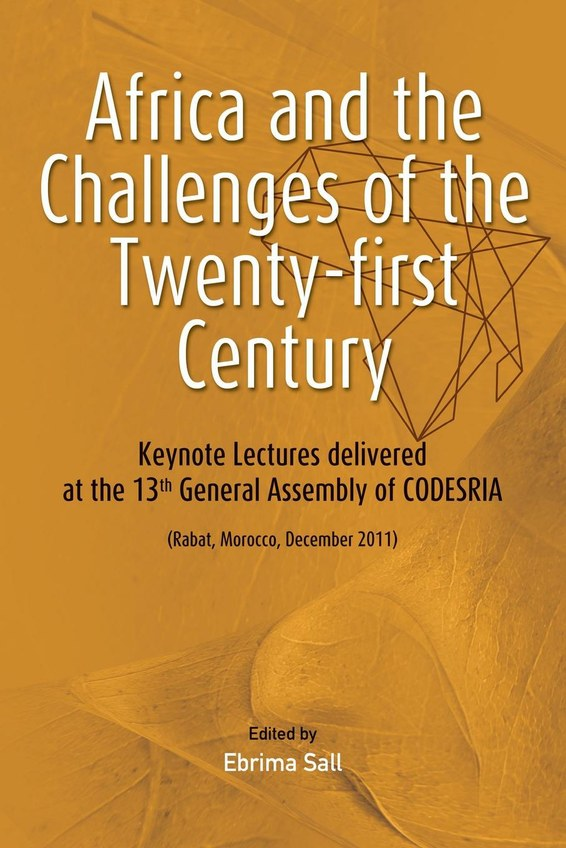Africa and the Challenges of Citizenry and Inclusion: The Legacy of Mario de Andrade (Printed)
Africa and the Challenges of Citizenry and Inclusion: The Legacy of Mario de Andrade (Printed)
At the 11th General Assembly of CODESRIA, held in Maputo in December 2005, Carlos Lopes presented the Cheikh Anta Diop Lecture on “Africa and the Challenges of Citizenry and Inclusion”, through the legacy of Mario de Andrade of Angola.
He discusses the life and times of Mário Andrade; African nationalism and its revolutionary proposals; and the triumphs and vicissitudes of Negritude and Pan-Africanism. He analyses the consequences for a country’s citizenry, inclusion and respect for identities, and concludes with implications for African intellectuals. Like Mário Andrade, who abhorred the rites associated with power and despaired at exclusionary notions of citizenship, Lopes is critical of narrow nationalism that jeopardises pan-Africanism, and calls on African intellectuals to denounce these practices in the interest of universal identity rights, based on the principle that development brings with it greater opportunities and freedom of choice.
Challenges to Identifying and Managing Intangible Cultural Heritage in Mauritius, Zanzibar and Seychelles (Printed)
Challenges to Identifying and Managing Intangible Cultural Heritage in Mauritius, Zanzibar and Seychelles (Printed)
Africa is richly blessed with cultural and natural heritage, key resources for nation building and development. Unfortunately, heritage is not being systematically researched or recognised, denying Africans the chance to learn about and benefit from heritage initiatives. This book offers a preliminary discussion of factors challenging the management of intangible cultural heritage in the African communities of Zanzibar, Mauritius and Seychelles. These islands are part of an overlapping cultural and economic zone influenced by a long history of slavery and colonial rule, a situation that has produced inequalities and underdevelopment. In all of them, heritage management is seriously underfinanced and under-resourced. African descendant heritage is given little attention and this continues to erode identity and sense of belonging to the nation. In Zanzibar tensions between majority and minority political parties affect heritage initiatives on the island. In Mauritius, the need to diversify the economy and tourism sector is encouraging the commercialisation of heritage and the homogenisation of Creole identity. In Seychelles, the legacy of socialist rule affects the conceptualisation and management of heritage, discouraging managers from exploring the island’s widerange of intangible heritages. The author concludes that more funding and attention needs to be given to heritage management in Africa and its diaspora. Rosabelle Boswell is a senior lecturer in the Anthropology Department at Rhodes University, South Africa and a specialist of the southwest Indian Ocean islands. Her research interests include ethnicity, heritage, gender and development. Boswell’s PhD was on poverty and identity among Creoles in Mauritius and her most recent work is onthe role of scent and fragrances in the heritage of the Swahili islands of the Indian Ocean region.
Challenges of Education Financing and Planning in Africa: What Works, What Does not Work? / Enjeux du financement et de la planification de l’éducation en Afrique : ce qui marche et ce qui ne marche pas ? (Printed)
Challenges of Education Financing and Planning in Africa: What Works, What Does not Work? / Enjeux du financement et de la planification de l’éducation en Afrique : ce qui marche et ce qui ne marche pas ? (Printed)
This volume highlights the proceedings of the two policy dialogue conferences held by the Working Group on Finance and Education (WGFE) in 2004. Part I of the document discusses the endemic crisis that higher educationhas been beset with since the outset of the post colonial period in Africa. It highlights the critical state of higher education systems in Burkina Faso, Mali, Nigeria and Senegal by scrutinizing the causes, manifestations and consequences of the crisis to posit useful recommendations and possible solutions. Part II is a comprehensive review of the challenges facing the financing and planning of all levels and types ofeducation – from kindergarten to graduate school – in selected African countries. The papers reveal the sources and mechanisms of funding education in Africa, drawing attention to the experiences of communities confronted with new funding sources. A new trend, which consists of designing decade long educational development plans, has emerged and is rapidly expanding in numerous African countries. This experience is examined and shared by the authors. This book has contributions in both French and English.
Africa and Development Challenges in the New Millennium: The NEPAD Debate (Printed)
In 2001 NEPAD – the New Partnership for Africa’s Development – was launched by South African President Thabo Mbeke and Abdoulaye Wade, President of Senegal. Its founding assumption was that African governments had to take much more responsibility for their economic, political and social policy if real development were to be achieved. AFRICA & DEVELOPMENT CHALLENGES IN THE NEW MILLENNIUM is the first major attempt by African scholars and policy makers to evaluate the meaning of NEPAD in concrete terms. The authors raise key questions about NEPAD’s ability to integrate Africa with the global economy, to overcome the challenge of poverty, and to bring about regional development. The book also addresses what NEPAD means for agriculture, industrialisation, trade and the « digital divide ». This is an important contribution to our understanding of NEPAD, why it has already run into extensive criticism, and the prospects for a new, more positive chapter in Africa’s development.


